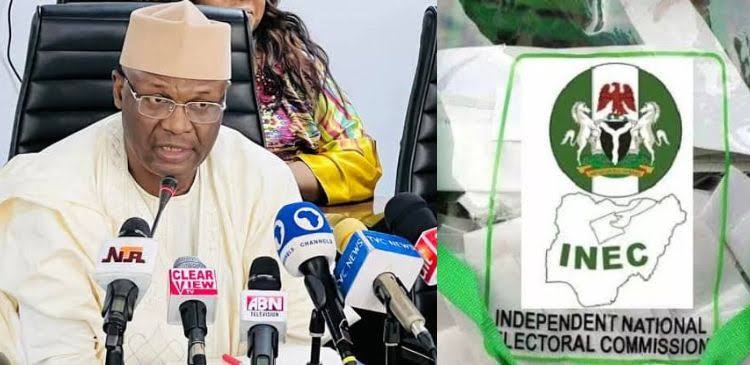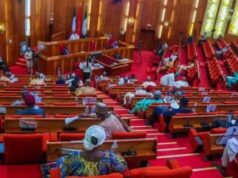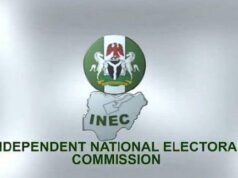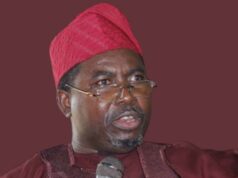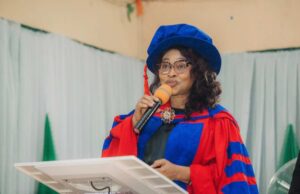For the general elections scheduled to begin on February 25, the Independent National Electoral Commission will deploy 707,384 presiding officers.
The commission added that because electoral education was crucial, it needed to be incorporated into Nigeria’s primary schools’ National Values Curriculum.
Festus Okoye, National Commissioner of INEC and Chairman of its Information and Voter Education Committee, made these remarks at the public unveiling of the primary school Electoral Education Curriculum and Teachers’ Guide.
READ ALSO: Lawyer Remanded In Correctional Facility For Alleged N10m Scam In Uyo
The curriculum was created in collaboration with the Nigeria Educational Research and Development Council, INEC (through the Voter Education Department), National Orientation Agency, the Civil Society Action Coalition on Education for All, and the Sustaining Electoral Engagement for Democracy project, which was funded by USAID and FCDO and implemented by the National Democratic Institute and IFES.
Festus Okoye, National Commissioner of INEC and Chairman of its Information and Voter Education Committee, made these remarks at the public unveiling of the primary school Electoral Education Curriculum and Teachers’ Guide.
The curriculum was created in collaboration with the Nigeria Educational Research and Development Council, INEC (through the Voter Education Department), National Orientation Agency, the Civil Society Action Coalition on Education for All, and the Sustaining Electoral Engagement for Democracy project, which was funded by USAID and FCDO and implemented by the National Democratic Institute and IFES.
“For instance, for the 2023 general elections in Nigeria, the commission will deploy a total of 707, 384 presiding officers and assistant presiding officers.
“These presiding officers will be drawn from the crop of young men and women doing their National Youth Service Corps, while the assistant presiding officers will be drawn from students from federal tertiary institutions.
“It is therefore important for us to understand the importance of electoral education in the development of our democracy.
“A national civic education curriculum and teachers’ guide with a specific focus on electoral education will prepare our children for the challenges ahead and also prepare them on how to respect other people’s races and also prepare them to assume leadership in future.”
The President of IFES, Anthony Banbury, said its contribution to the project was to strengthen Nigeria’s electoral process through effective teaching and learning of civic education in primary schools.
“To catch them young, the revised curriculum is a hallmark innovation that will introduce children and youth very early to the concept, processes, ethics, and values of democratic systems and governance.
“It will be essential for the young people’s orientation to initiate a shift from the existing norms. In the long term, it will increase civic participation and knowledge of democratic systems and values, as the children of today become the adults and the voters of tomorrow,” Banbury said.
The Executive Secretary of NERDC, Prof. Ismail Junaidu, said the aim was to strengthen the fabric of the nation’s democracy for sustainable growth and development.
According to him, since the return of democracy in 1999, citizens’ participation in elections and the electoral process had remained an issue of concern.
He also said that a known reason for this was the lack of adequate electoral knowledge.
“Hence, promoting democratic electoral culture and developing civic skills are therefore necessary for well-informed and responsible participation in elections and in the electoral process,” Junaidu said.
He said that the above informed the initiative of the NERDC in collaboration with IFES to develop the Electoral Education Curriculum for primary schools in Nigeria.
According to him, the curriculum, generally, is developed to expose young learners to the rudiments of democracy and inculcate in them the knowledge, skills, and attitudes necessary for active citizens’ participation in the democratic process.

